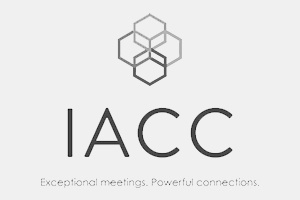Glenn Mead, Performance Psychologist at Face Value Performance Psychology, spoke at our L&D Thought Leaders Conference in June. Below, he explores what neuroscience can tell us about how the brain functions when setting goals and planning.
Living A 24/7 'Always On' Life
In the highly-connected world that we live in today, it is not unreasonable to demand instant answers to the questions that pop into our heads at any time of day. When we want to know our bank balance, or what time a train departs, or what’s on at the cinema this week, we simply open up an app or type into a search engine and our need for instant gratification – to know right away – is immediately satisfied.
Our expectation for instant knowledge is taken for granted in the 24/7 ‘always on’ lives that we lead. An unfortunate and possibly unwanted effect is the contrast it places on the length of time that we do not know something. When we receive emails from work colleagues requesting information, we can potentially jump to two assumptions: firstly, that the instantaneous nature of the email being sent and received requires a similarly instantaneous reply, and secondly, if it is the case that we don’t have an appropriate response to the request made, that we are somehow unable to meet our obligation (of supplying the information requested) and in some way lacking competence.
When the perceived demands placed on us exceed our perceived ability to perform, we experience pressure and stress and feel overwhelmed. When this continues for a short while, the usual prescription to cure the ailment is attendance on a time management course. The side effects of these are usually an increase in unread emails and a bad case of course coffee breath. When the condition becomes chronic (pun intended!), negative consequences are increased irritability, headaches, difficulty in concentrating and making decisions, leading to, in the worst case, exhaustion and burnout.
What Can Neuroscience Tell Us About What Is Happening Inside Our Heads?
A crucial fact to be aware of is that a part of the brain called the anterior cingulate cortex, which is involved in detecting errors, making judgements, taking a decision and committing to action, is disrupted and its performance impaired by information overload. This impairment becomes more pronounced when there is a perception of being incompetent and unable to manage the demands. Everything can quickly seem to be important (meaning in need of a decision being made) and even the slightest failure on our part can be taken as concrete evidence of complete and utter incompetence.
The word ‘perceived’ is in italics for a reason, for it is the world as we perceive it that leads to interpretations of our being able to cope or not. Not only can these perceptions be inaccurate, they are formed by two independent thinking areas of the brain that have entirely different purposes: one is for rapid decision making and action for the purpose of survival, and the other is more deliberate in how it reaches a conclusion, taking time to use logic and to plan. The former influences the sympathetic nervous system and the stress response (increased heartrate and pulse, rapid breathing, butterflies, sweaty hands and dryness of mouth), and it has the power to override the latter brain’s ability to think logically and deliberately. We experience the physical sensations of anxiety as we fear making a fool of ourselves by not coping (performance anxiety), find it difficult to see the wood from the trees or explain ourselves clearly (orientation anxiety) and worry about letting ourselves and others down (acceptance anxiety).
Speed of reaction is one differentiating factor between these two thinking brains. Another is how they manage perspective – how incoming information differs in terms of time and scale. For survival purposes, it is expedient to perceive threatening issues as being immediate or imminent and of a magnitude that is absolute and overwhelming. Right here, right now, no ifs and no buts. However, believing that everything has to be attended to right here, right now (emails responded to, information sought, action taken) leads us to pay attention to selected stimuli at the expense of getting on with the longer-term, more considered plans carefully devised by our slower, logical-thinking brain. A scattered attention span gives rise to lower-quality decisions and increases the chance that the outcome will be less optimal than required – adding to the initial perception of being unable to cope, incompetent, not up to the job (even these perceptions and self-beliefs can become absolute, all-or-nothing).
Setting SMART Goals
So, what can we do to start to reduce the effect of this ‘scatterbrain’ feeling of being distracted by information overload? We need a clear and straightforward plan designed to achieve a clear and simple purpose. Breaking down a goal or objective into simple, achievable steps is at the core of SMART goal-setting: visions, missions and strategic objectives decompose into goals and tasks – putting perspective of scale and magnitude onto the desired outcome. This allows a sense of control to grow, which helps to stabilise any beliefs of incompetence. In effect, it forces an answer to the question ‘How do you eat an elephant?’
As soon as perspective of scale is established, perspective of time will follow. ‘How soon is now?’ is the question Morrissey of The Smiths would ask. How quickly are we expecting to receive feedback, and to what extent will that feedback satisfy our emotional need for reassurance – to reduce our feelings of acceptance, orientation and performance anxiety?
With a well-defined purpose in place (clear in time and scale), a plan can be formed. If we can manage our expectations for immediate and reassuring feedback as we monitor our progress, and learn to become resilient to setbacks, we can reduce the load on our anterior cingulate cortex and make better-informed and better-timed decisions. Purpose, Plan, Progress©: reduced noise, sharper focus, stronger performance.
To close with the words of the Prussian Field Marshal Helmut von Moltke:
“The surest way of achieving your goal is through the single-minded pursuit of simple actions”.






